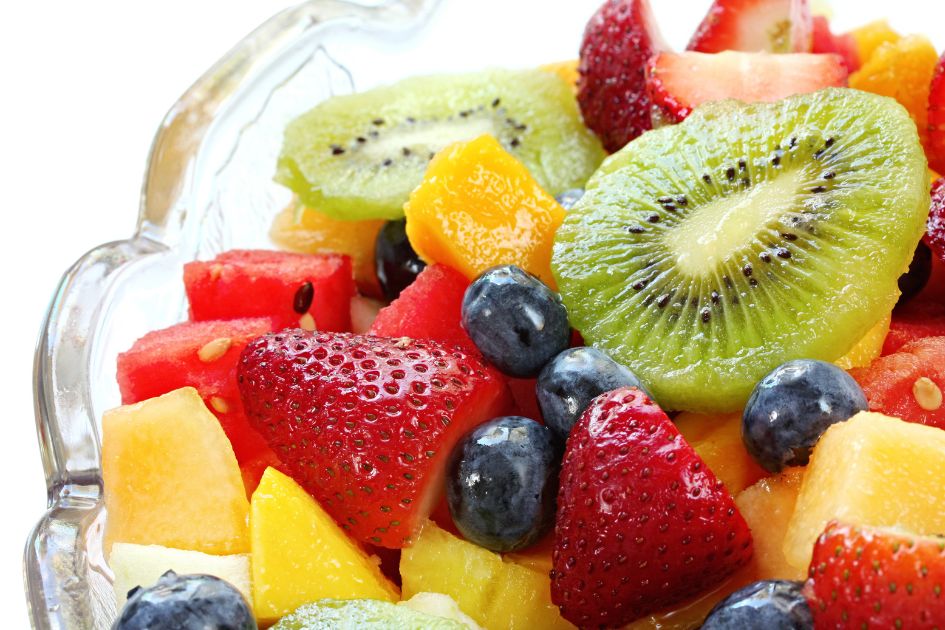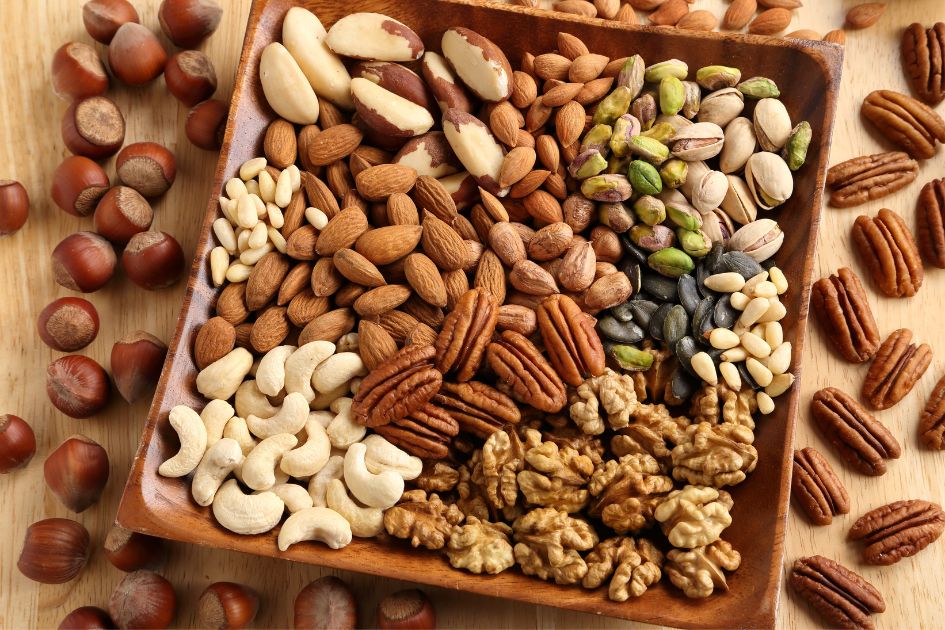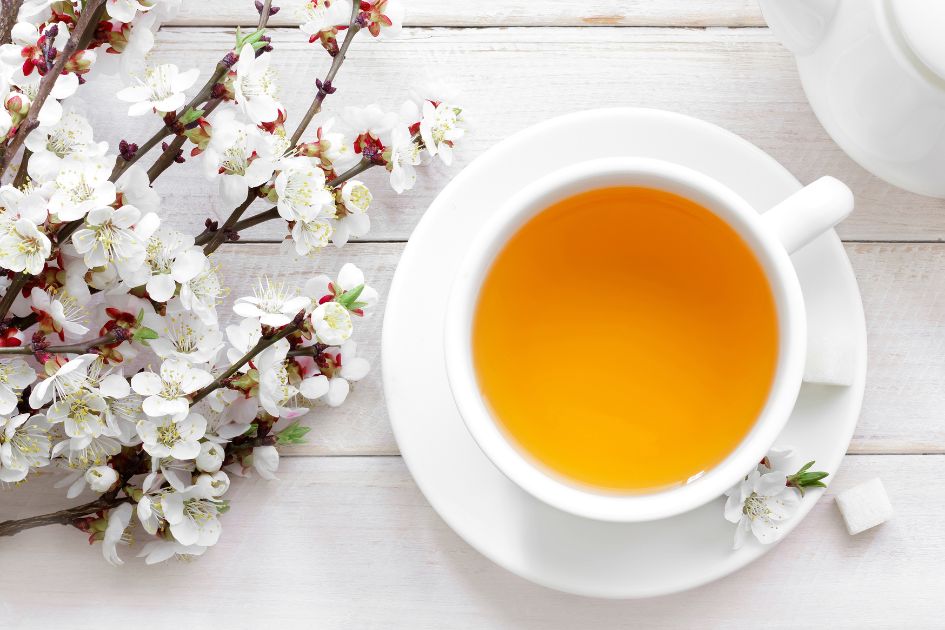How to Protect Your Brain from Dementia with Food
May 13, 2024
Table of Contents
Higher Life Expectancy and Dementia Risk
Advancements in healthcare have resulted in higher life expectancy than a century ago, and this even accounts for the recent decline attributed to the pandemic. Unfortunately, without proactive care and implementation of healthy lifestyle medicine practices, Black women have an increased chance of not experiencing this higher life expectancy. Even when you live longer lives, the quality of those years is often affected by diseases such as obesity, diabetes, high blood pressure, stroke, heart disease, certain cancers, and dementia. Dementia, defined by Alzheimer’s Association as “a general term for loss of memory, language, problem-solving and other thinking abilities that are severe enough to interfere with daily life” is particularly concerning for many since it is so debilitating, has very few treatments, and is generally not reversible. It is anticipated that by 2050 there will be two billion individuals aged 60 or older of whom 131 million will be afflicted by dementia1.
In this article, I’ll share why Black women should be particularly concerned about dementia, and I’ll give you the details on 7 research-supported foods shown to help protect the health of your brain and could potentially stave off dementia.
Dementia and Black Women
Dementia is a complex cognitive and behavioral condition that affects people of all ages, genders, races, and ethnicities. However, older age and female gender increase the risk, and research has shown that Black women may be at a higher risk of developing dementia compared to all other demographic groups.
With aging comes changes in brain size, shape, chemicals, vasculature, and resulting cognition. Couple that with poor nutrition, chronic illnesses, obesity, uncontrolled blood pressure, increased incidence of stroke, and sedentary lifestyle that are more commonly seen in Black women, and we see a significant increase in cognitive risks in this population. Another factor that affects women in particular as they age is the cognitive impact of menopause. Researchers have reported changes in the total brain volume, gray matter, and white matter in the brain of postmenopausal women over 50 years not seen in younger females3. It is not unusual to hear menopausal women use descriptors such as “slow information processing, lack of focus and concentration, word finding difficulties, memory changes, and ‘brain fog” to explain the cognitive changes they experience.
Factors That Put Black Women at Higher Risk of Dementia
In addition to the aforementioned lifestyle factors, other considerations that uniquely put Black women at increased risk of impaired brain health and poor outcomes include reduced health literacy and cultural/religious beliefs that can hinder early diagnosis, as well as socioeconomic disparities and structural racism that can limit access to appropriate treatments.
Role of Nutrients in Slowing Down Ageing Brain
Clinical indications of neurodegeneration often don't appear until later in life, after the brain has already undergone a steady process of shrinkage. The process is believed to start as early as the age of 30. Fortunately, in most cases, this process is gradual and slow. This allows for the implementation of lifestyle medicine strategies to help with prevention and early intervention to keep the brain healthier for longer4. Nutrition, an important part of the Lifestyle Medicine Rx® Coaching process, has been used successfully not only to prevent, treat, and reverse certain chronic illnesses but has also shown great promise in protecting brain health and slowing neurodegenerative diseases5.
Dietary Interventions for Cognitive Improvement
Specific Dietary Intervention and Cognition
A healthy diet is just one aspect of a comprehensive approach to protect your brain’s health and reducing your risk of dementia. While there is no single food or diet that can guarantee the prevention of dementia, research suggests that certain patterns of eating and specific nutrients found in some foods can be very protective.
The MIND Diet
The DASH (Dietary Approaches to Stop Hypertension) diet is a pattern of eating aimed at controlling high blood pressure. This diet is high in important nutrients, and limits sodium and saturated fats. It has been shown in this study to be an important factor in maintaining cognitive function as we age. The MIND diet, which stands for the Mediterranean-DASH Intervention for Neurodegenerative Delay, is another unique dietary pattern that places an emphasis on whole food plant-based meals while limiting consumption of animal products and foods rich in saturated fat.
This approach to eating emphasizes the consumption of berries and green leafy vegetables, both of which have been shown to have antioxidant and anti-inflammatory effects, and are known to reduce the risk of beta-amyloid deposition and neurotoxic mortality (both of which can negatively impact the health of the brain). Researchers studied the impact of long-term adherence to the MIND diet and its impact on cognition and found that the MIND diet was moderately associated with better verbal memory later in life. Another study found that the MIND diet was associated with a slowing of global cognitive decline after stroke.
7 Nutrients for Brain Health
The foods below are 7 from a longer list, that have been shown to be important in preserving the health of your brain thereby potentially reducing the risk of dementia.
1. Berries

This may be surprising to you, but bananas, grapes, blueberries, black currants, and coffee beans are all examples of real berries since they are fleshy fruits that develop from the complete ovary of the plant which encases the seeds. Strawberries, raspberries, blueberries, black currants, blackberries, and other soft fruits with many seeds are what we are more familiar with as "berries". Berries are packed with nutrients and antioxidants and are known to protect the brain from neurodegeneration and reduce the negative effects of inflammation that can contribute to cognitive decline. As a bonus, berries are generally low in calories, lipids, and sodium, but high in minerals, fiber, and vitamin C. They are not only important for improving cognitive functioning but have been shown to improve overall health and well-being.
2. Nuts

Nuts such as almonds, pecan, and walnuts are high in healthy fats and antioxidants which can help protect the brain and reduce the risk of cognitive decline. Nuts have a special matrix of macronutrients, micronutrients, and bioactive phytochemicals that make them a nutrient-dense food. They have a protective effect on the brain by improving vascular risk factors such as blood pressure, glucose regulation, endothelial function, and inflammation. Multiple studies have shown their importance in improving healthy aging and reducing cognitive decline or memory loss. Walnuts in particular have demonstrated good outcomes in trials for memory enhancement, with similar findings seen with almonds, hazelnuts, and pistachios. Nuts also provide the amino acids arginine, lysine, and tryptophan, as well as riboflavin, folate, and a variety of tocopherols, dietary fiber, calcium, salt, magnesium, phosphorus, potassium, and a host of trace elements (copper, zinc, and selenium). These nutrients are known to have a positive impact on the brain’s health.
3. Dark Leaf Green Vegetables

Dark leafy greens, such as spinach, collard greens, and kale have an impressive nutritional, antioxidant, and phytochemical composition known to improve brain function and slow age-related cognitive decline. In addition to contributing negligible levels of salt, cholesterol, and carbs, leafy greens enhance nutritional quality by offering several vital vitamins and minerals. The antioxidants in dark green vegetables have been shown to protect cells from free radical damage, which may help preserve heart health, eyesight, and memory, and lower the risk of cancer.
4. Green Tea

The plant Camellia sinensis, most popularly known as green tea, has been admired for being antioxidant-rich and for its medicinal benefits for centuries. Green tea, which is made by steaming the leaves of the Camellia sinensis plant, contains a number of different chemicals, the most prominent of which are catechins, the most abundant of which is epigallocatechin gallate (EGCG), followed by theanine and caffeine. Multiple studies have demonstrated that both EGCG and L-theanine have neuroprotective properties by improving brain function and reducing cognitive decline and that L-theanine also modulates mood10. Adding a cup or two of one of my favorite green teas to your daily routine offers a healthy beverage that not only keeps your brain healthy but also lifts your mood.
5. Turmeric

Curry gets its characteristic color from curcumin, an orange-yellow chemical found in turmeric. Turmeric has been a cherished herb in Ayurvedic medicine for hundreds of years. Multiple neurological disorders and cancer have been cited as examples of the organ systems in which curcumin has proven beneficial. Curcumin has shown an array of health benefits to the brain. It also boasts the ability to fight free radicals and provide a reduction in inflammation, cancer, and microbes. Turmeric should be a part of the spice rack in every kitchen, and just by using it in your foods, you can gain the benefits that have been praised for more than a century. It is important to note that piperine (an alkaloid present in black pepper), as well as ginger, increases the bioavailability of turmeric. One way to get the benefits of turmeric is by adding it along with ginger to smoothies or tea. Another way is by taking it in capsule form.
6. Water

Adequate hydration with water is known to affect the body’s function and homeostasis. One study showed that even a small amount of dehydration can affect how our brain functions, and can result in us experiencing headaches, impaired concentration, and mood changes. Water also has the added benefits of curbing hunger and cravings with the potential of helping to control weight. The often-quoted recommendation is 6-8 cups per day or one-half the body's weight in ounces. Health conditions such as congestive heart failure and kidney disease can affect the specific water recommended intake, so check with your physician. Easy ways to help keep yourself hydrated include setting an intention each day and keeping track, keeping your favorite water bottle full bottle of water on your desk with a goal of emptying it by a certain time, having a reminder alarm, using a hydration app, joining a challenge, or have an accountability buddy.
7. Pomegranate

The ellagitannin polyphenols included in pomegranate juice have antioxidant and anti-inflammatory effects and are shown to protect neurons (one type of cells found in the brain) from the free radicals that are created during regular metabolism, thus helping to keep the brain healthy. Research shows greater activity in the regions of the brain that control visual memory functions and greater maintenance of visual memory in those who consume pomegranate juice over those who received a placebo. In addition, this nutritional intervention is not only delicious and inexpensive but also highly accessible.
Conclusion
Dementia can be devastating not only to the person diagnosed with it, but also to the caregiver family, and friends. It affects every aspect of the patient’s life, limits their ability to function, and renders that person a shell of who they once were. Although there is no definitive prevention or cure, there are patterns of eating and nutrients found in specific foods shown to maintain the health of the brain thereby reducing cognitive decline. Since Black women as a group have unique risk factors and have been shown to higher risk of dementia, it is important for them to start preventive and maintenance measures by adding foods that support the health of their brain to their diet. In future blog posts, I will discuss other Lifestyle Medicine Rx interventions known to support healthy aging in Black women over 45.
Dr. Diane Thompson, MD is board-certified in Physical Medicine and Rehabilitation with a subspecialty in Brain Injury Medicine. She is also board-certified in Lifestyle Medicine and Age Management Medicine and a certified health coach who helps women over 50 use Lifestyle Medicine and longevity science to reverse and help control chronic diseases and age healthfully. She is the author of this Amazon bestseller.
Disclosure: The information presented is for educational purposes and is not meant for diagnosis or treatment. No physician-patient relationship is intended. Discuss with your physician prior to making any changes to your health. Some of the links in this blog may be affiliate links, which are of no additional cost to you and allow me to keep the content free. These are products I’ve personally used.
🚀 Do you need my help with Lifestyle Medicine Coaching and Consulting to improve your health, help with disease management or weight loss, and promote healthy aging? Click this link
Subscribe to MoRadiance® Woman Newsletter, the #1 newsletter for women over 50 who are looking for the latest strategies to maintain health, wellness, radiance, and longevity as they age. Each month I will share the latest age-management and lifestyle medicine strategies in your inbox.
